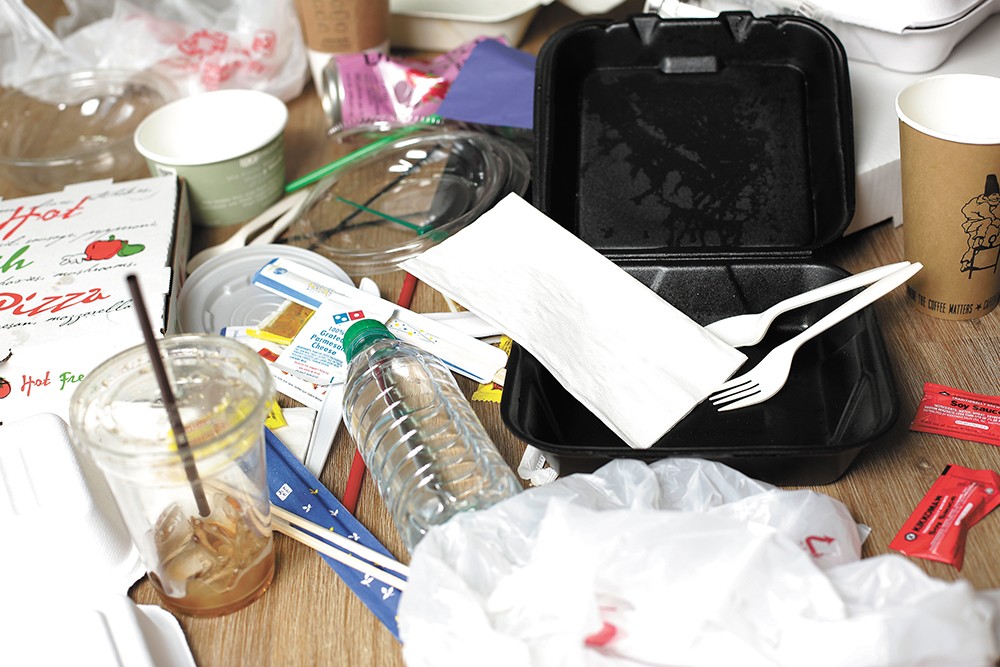Waste Not
Restaurants produce a lot of waste; here’s how some in Spokane are working to curb that

How much waste does the average restaurant in Spokane produce each day, week or even year?
While the numbers are incredibly hard to pin down due to the practices of each individual restaurant, its format (fast food vs. dine in), location, customer volume and a multitude of other factors, the answer is: a lot.
But it doesn’t have to be that way. At Cochinito Taqueria in downtown Spokane, for example, there’s just one receptacle for waste. It’s a compost bin.
“Visiting Cochinito is a great way to think about designing a system so it doesn’t become more cumbersome,” says Erik Makinson, founder and CEO of Resource Synergy. The Spokane-based company works with businesses of varying scale, and not just restaurants, to help them reduce money spent on water, energy and waste disposal, thus becoming more environmentally sustainable in the process.
“They’ve designed out trash from the front of their house — they just don’t have trash generated in the dining area,” he continues. “There is still some packaging in the kitchen, but that is a great example of starting with the end in mind.”
The fast-casual taco eatery serves its food on metal trays lined with paper, and traditional stainless steel utensils and other reusable items are collected in a dish bin at a self-bus station. Most of its beer selection is in recyclable cans. Other drinks are served in glasses with compostable straws.
Cochinito chef and co-owner Travis Dickinson says there were a few reasons to compost nearly all his restaurant’s waste. First and foremost, the building in which it’s located was at capacity for its trash collection when he moved in, meaning Cochinito would have to pay significantly more for garbage service, or figure out another solution. Dickinson personally believes in operating the restaurant as sustainably as possible and saw composting as a practical means to do so.